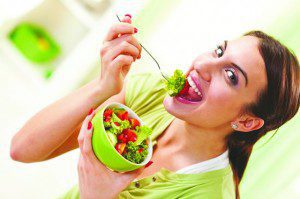By Evie Breedlove-Mangapora, ARNP
& Deborah J. Post, ARNP
 “Cancer is just the tip of the iceberg revealing that there are so many other underlying things. You have to be sick to get cancer. Your body is already compromised. Your immune system is weak, you’re toxic, you’re stressed out, and that’s how cancer develops. Cancer isn’t just something that gets you. It’s something that develops over a period of time. You’re not a victim of it. You have a lot of control over it.”
“Cancer is just the tip of the iceberg revealing that there are so many other underlying things. You have to be sick to get cancer. Your body is already compromised. Your immune system is weak, you’re toxic, you’re stressed out, and that’s how cancer develops. Cancer isn’t just something that gets you. It’s something that develops over a period of time. You’re not a victim of it. You have a lot of control over it.”
– Veronique Desaulniers
So what are the options beyond the basics of:
• organic whole food diet
• restful sleep
• strengthening exercise
• emotional stability
• clean air
• water that would support a cancer free body
Optimize your vitamin D: Vitamin D influences virtually every cell in your body. Vitamin D is actually able to enter cancer cells and trigger apoptosis (cell death). Vitamin D works as well at killing cancer cells as the toxic breast cancer drug Tamoxifen, without any of the detrimental side effects. Your vitamin D level should be between 70 and 90 ng/ml. Ask your doctor to check your levels.
Get the proper amount of natural vitamin A: Your best sources are organic egg yolks, organic beef or chicken. However, be beware of supplementing cod liver oil, as there’s some evidence that too much vitamin A can negate the benefits of vitamin D. A good amount would be 5000 IU: 3000 IU as beta carotene and 2000 IU as Vitamin A retinol.
Ideally, you’ll want to provide all the vitamin A and vitamin D substrate your body needs in such a way that your body can regulate both systems naturally. This is best done by eating colorful vegetables (for vitamin A) and by exposing your skin to sun every day for vitamin D (please avoid getting sunburn).
Iodine: taking at least 800-1200 mcg of iodine in liquid drops daily, and more if levels indicate, will keep the thyroid working. Ask your doctor to check your levels to determine whether you need supplementation.
Avoid charring meats: Charcoal or flame broiled meat is linked with increased breast cancer. Acrylamide—a carcinogen created when starchy foods are baked, roasted or fried—has been found to increase breast cancer risk as well.
Avoid unfermented soy products: Unfermented soy is high in plant estrogens, also known as isoflavones. It’s controversial whether unfermented soy increases breast cancer. Miso and Tempeh are examples of fermented soy that is safer.
Improve Your Insulin Sensitivity: The best way to do this is with exercise and foods appropriate for your nutritional type. A high carbohydrate diet may increase your cancer risks.
Eliminate Sugar Consumption!
Maintain a healthy body weight. This will come naturally when you begin eating right for your nutritional type and exercising. It’s important to lose excess body fat because fat produces estrogen.
Get plenty of high quality omega-3 fats, such as krill oil. Omega-3 deficiency is a common underlying factor for cancer.
Avoid drinking alcohol, or at least limit your alcoholic drinks to one per day
Examine personal space and product usage: Many personal care products contain carcinogens. Replace them with homemade clean household cleaners and cosmetics.
Check out the Environmental Working Group online to see exactly what are in the products you are using. www.ewg.org
Other Research-Based
“Dos and Don’ts”
CoQ10: appears to be another useful tool. Ubiquinol would be the preferred form as it works better than the oxidized CoQ10.
Black cohosh shows promise in fighting breast cancer by inducing cell death in cancer cells.
Curcumin has the most evidence based literature for use as an anti-cancer support. It has been found to inhibit the number of tumor cells and the transformation of normal cells to cancer, and will help your body destroy cancer cells and prevent the development of a blood supply to cancer cells.
Good foods for fighting breast cancer include kelp, spicy foods, cruciferous vegetables (especially broccoli), Green Tea, and evening primrose oil.
Antiperspirants can increase your breast cancer risk due to aluminum, parabens and polyethylene glycol.
Too much light at night can increase breast cancer by inhibiting melatonin.
So darken your bedroom and keep the lights lower in the evening.
Avoid electromagnetic fields when possible: Electric blankets can increase your cancer risk. Turn off Wi-Fi in your home at night and turn off phone when you are not using it.
Frankencense and Myrhh and other essential oils have been medicinal oils traditionally used to treat many illnesses for centuries.
Thermography: It takes nearly a decade for breast cancer to grow to a detectable size. The mammography puts 50 pounds of pressure on the breast and the radiation is not benign. Thermography uses a heat signature to look for blood supply without radiation or pressure.
If You’re Diagnosed With Early Stage Breast Cancer
If you are diagnosed with DCIS, or another form of early stage breast cancer, always get a second, and possibly third opinion, since the false positive rates are too high and the diagnostic criteria too subjective.
Before you make any decision on treatment- and definitely before you decide to have surgery or chemotherapy- make sure your biopsy results have been reviewed by a breast specialist who is knowledgeable and experienced in that field.
How we can help you:
Want to feel better?
Want to reduce your overall risk for cancer?
Want to learn how your lifestyle choices can impact your health problems.
Attend one of our presentations
“Stress, Hormones & Health-A
Functional Approach”
CALL NOW to reserve a seat.
RSVP is required
(239)560-8334









